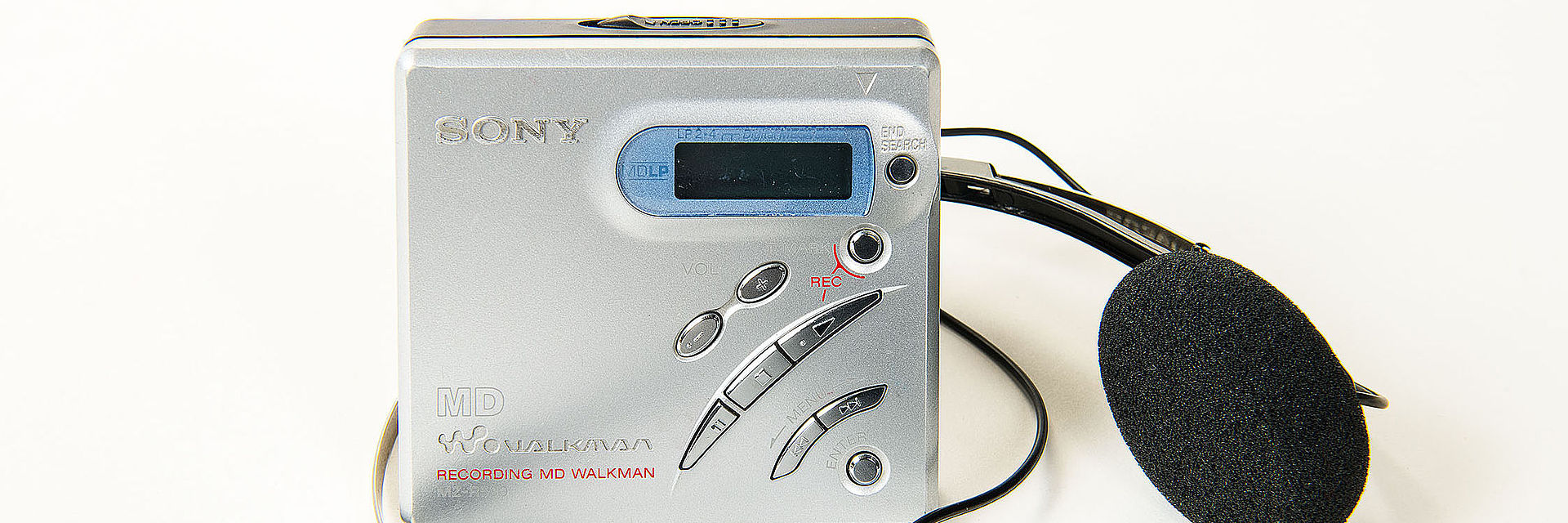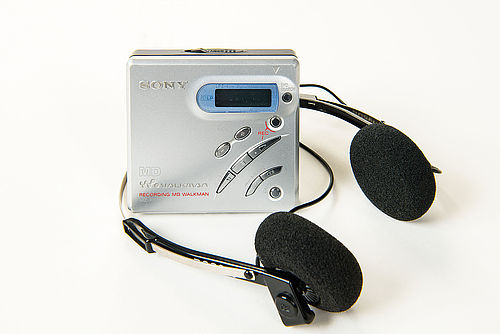
Portable MiniDisc Recorder MZ-R500, 2001
Object of the month May 2021

SDTB / C. Kirchner
I want to listen to music! But how exactly? Nowadays that question is quickly answered: with a smartphone of course! Twenty-five years ago that answer would not have been quite so obvious because around the time of the new millennium a broad selection of different data storage media and players were available for use. These included various versions of the CD along with cassette tapes and "exotics" such as, for example, DVD audio and DAT.
At the beginning of the 1990s the Japanese electronics company Sony introduced a further data storage medium in the marketplace called the MiniDisc. Ten years earlier the company had celebrated a major commercial success with its "Walkman", which was an analogue cassette tape player. The MiniDisc player and recorder was Sony’s attempt to establish a new standard in the field of audio. It, too, was compact, sturdy and portable like the Walkman but featured a small digital data carrier that could store and play audio data at near CD quality.
Despite numerous advertising campaigns, that small magneto-optical device found little resonance outside of Japan. The MZ-R500 version, which began production in 2001, was similarly received. With its small size, recording function and improved sound quality, the recorder cost a hefty 420 DM. The MiniDisc was unable to overtake the CD format which had already become established in many households. Moreover, around the 2000s a new format that would almost instantaneously revolutionize the audio market and our listening habits was already proliferating: MP3
